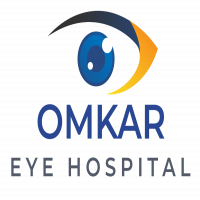Cataract Surgery: What to Expect Before, During, and After the Procedure

Cataract surgery is one of the most common and successful surgeries performed worldwide. It involves the removal of a clouded lens in the eye and its replacement with an artificial lens. This procedure is usually recommended when cataracts, a condition where the eye's natural lens becomes cloudy, begin to impair vision. If you or a loved one is scheduled for cataract surgery, you might be wondering what to expect before, during, and after the procedure. This blog post will walk you through the process step-by-step.
Before the Procedure
Before undergoing cataract surgery, there are a few important steps to prepare for the procedure. Your ophthalmologist will conduct a thorough eye examination, including measuring the shape and size of your eye. These measurements are essential for determining the appropriate type of intraocular lens (IOL) to implant during surgery. The IOL will replace your clouded natural lens and restore your vision.
You will also be asked to provide a complete medical history. This helps the surgeon assess any underlying conditions, such as diabetes or heart disease, which could affect the surgery or recovery. Depending on your health, you may be instructed to stop taking certain medications or adjust your medication schedule before surgery.
In the days leading up to the procedure, your surgeon will give you specific instructions to follow. These may include using antibiotic eye drops to reduce the risk of infection or using dilating drops to widen your pupils before the surgery. It is important to follow these instructions closely to ensure a smooth procedure.
On the day of the surgery, you will typically be asked to arrive at the hospital or clinic at least an hour before the scheduled surgery time. This gives the medical team enough time to prepare and answer any last-minute questions. You may be given a mild sedative to help you relax before the procedure, although you will remain awake during the surgery.
During the Procedure
Cataract surgery is usually performed on an outpatient basis, meaning you can go home the same day. The surgery is typically done under local anesthesia, so you will not feel pain during the procedure. Your surgeon may also use a mild sedative to help you stay relaxed throughout the process.
The procedure itself is minimally invasive. The surgeon will make a small incision in the cornea, the clear outer layer of the eye, to access the clouded lens. Using a technique called phacoemulsification, the surgeon will break up the cataract into small pieces and remove them from the eye using ultrasonic energy. Once the cataract is removed, the surgeon will insert a new intraocular lens (IOL) to replace the natural lens.
The entire procedure usually takes about 15 to 30 minutes, depending on the complexity of the cataract. You may feel some pressure or mild discomfort during the surgery, but there should be no significant pain. After the procedure, you will be taken to a recovery area where you will be monitored for a short time before being allowed to go home.
After the Procedure
Following cataract surgery, your recovery will generally be quick and straightforward. Most patients experience improved vision within a few days, although it may take a few weeks for your eyes to fully adjust. Here’s what you can expect during the recovery period:
Post-surgery care: You will be given eye drops to help prevent infection and reduce inflammation. It is essential to follow your surgeon’s instructions carefully and attend any follow-up appointments to ensure proper healing.
Rest and recovery: While cataract surgery is minimally invasive, it is still important to rest and avoid strenuous activities, especially bending or lifting heavy objects, for a few weeks after the surgery. This will allow your eye to heal properly.
Vision changes: It’s normal to experience some blurry vision, mild irritation, or light sensitivity in the first few days after surgery. However, your vision should gradually improve, and any discomfort should subside within a week or two. If you experience severe pain, sudden vision loss, or other unusual symptoms, contact your doctor immediately.
Adjusting to the new lens: After cataract surgery, you will likely need a new prescription for glasses, especially for reading or close-up tasks. Many patients find that their vision is significantly improved, and some even experience better clarity than they had before developing cataracts.
Long-term care: In most cases, cataract surgery offers long-term benefits, with the majority of patients experiencing restored vision for many years. However, some people may develop a condition known as "secondary cataract" (or posterior capsule opacification) years after surgery. If this occurs, a simple laser procedure can quickly restore clear vision.
Conclusion
Cataract surgery is a safe and highly effective procedure that can significantly improve your vision and quality of life. By understanding what to expect before, during, and after the procedure, you can help ensure a smooth and successful experience. Be sure to follow your surgeon’s instructions closely, and don’t hesitate to reach out if you have any concerns during your recovery. With the right care, you can look forward to a future with clearer, sharper vision. Blurred vision from cataracts can disrupt daily life, but advanced cataract surgery in Chinchwad offers a precise, safe solution. Modern techniques like phacoemulsification and laser-assisted surgery ensure faster recovery and clearer vision with minimal discomfort. Whether you're in Chinchwad or elsewhere, choosing an experienced surgeon and understanding the procedure can make the journey smoother.
Note: IndiBlogHub features both user-submitted and editorial content. We do not verify third-party contributions. Read our Disclaimer and Privacy Policyfor details.





